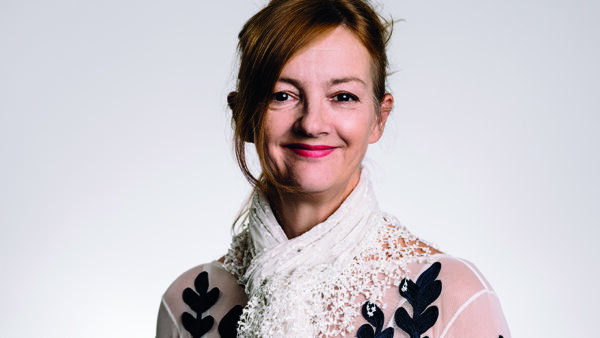Professional indemnity insurance: the first step towards combatting the crisis

CIOB gathered representatives from other professional bodies to debate how the construction industry can start to overcome the insurance sector’s reluctance to offer professional indemnity insurance. Justin Stanton reports.
The construction industry has a professional indemnity insurance (PII) problem, ranging from cover being too expensive to not being available at all. The CIOB recently pulled together representatives from other professions in the built environment – and from the insurance sector – to debate the issue at a roundtable.
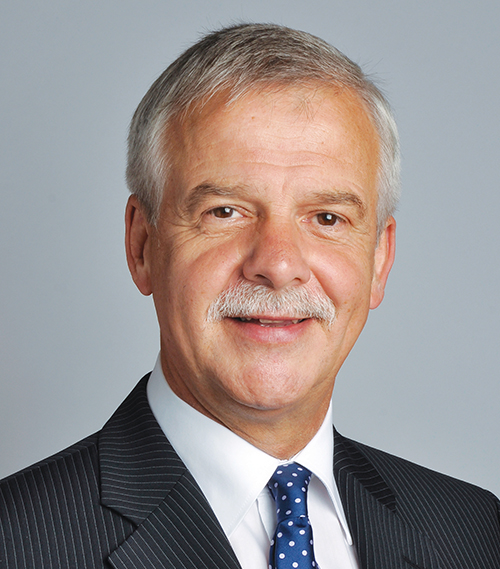
CIOB president Mike Foy started the event by setting the scene: “We understand from our membership that there are some difficulties securing PII now, with premiums rising and availability falling with fewer insurers willing to take the risk. We want to see whether this issue is similar across the wider built environment, and we want to find out what other organisations are doing around these issues and whether we can get this even higher up the government’s and industry’s agenda than it currently is.
“We are well aware that the Construction Leadership Council is working on the issue, and we are keen to support their activities wherever possible and see what we can do from a professional bodies perspective.”
Register for free or sign in to continue reading
This is not a paywall. Registration allows us to enhance your experience across Construction Management and ensure we deliver you quality editorial content.
Registering also means you can manage your own CPDs, comments, newsletter sign-ups and privacy settings.
The event was chaired by PII expert Roger Flaxman, chairman and principal consultant of Flaxmans. In response to Flaxman’s questioning, Association of British Insurers (ABI) director of general insurance policy, James Dalton, contextualised the issue that the construction industry now faces: “Pre-Grenfell, we saw a significant push for deregulation, the effect of which was to make buildings less safe and therefore more difficult and costly to insure. Overlay that with:
- poorly documented risk management processes and procedures;
- some very large claims, not necessarily from construction but in the wider PII market;
- the historic unprofitability of the PII market; and
- the reduction in Lloyds’ capacity (reflecting a global reduction in PII capacity and in the UK building and construction sector) and you’ve got a perfect PII storm.”
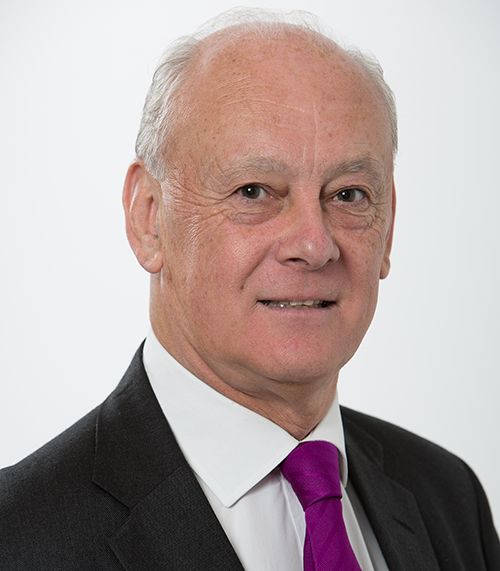
Building insurance from scratch
Flaxman noted: “The question is if we were starting today what kind of insurance would we design to cover today’s criteria? It is easier to build [insurance cover] that has not been built before that fits the purpose than change what we have already got. I think the smart thing to do is to bring out, finally, the best and experienced brains to create a proposal that an insurer can say ‘yes’ to.”
With that in mind, he asked those around the table: “What is the single most prominent issue to address to preserve the incentive for people like us to continue in the built environment? Why do you want to be in it?”
CIOB president Mike Foy answered: “Pride of being involved in something that does not continually hit the press with unwelcome news, rather with all the good stuff that we do. We do a lot of things well, but we do other things that are not good.

“I think we’ve got such a diverse industry, from the major contractors - some of whom do things well - to the smaller contractors, some who perhaps don’t have the knowledge and skills required, and therefore that generates a bad reputation, such that whatever we do, people just frown upon us.”
This sentiment – of an industry striving to make the world a better place - was echoed around the table.
Jennifer Dixon, architect, lead designer and Royal Institute of British Architects (RIBA) client adviser at Dixon Architects and RIBA, said: “As a society, we need to be able to build more and better. I think that there is too much friction in the system, making our industry inefficient. There are parts of the country, and indeed the world that need more and better homes and better communities that could be enabled if there was less ‘drag’.
“There is a huge amount of friction in the English system, partly because of punitive contractual conditions and poor understanding of professional roles, duties and risks, which have created a culture of defensive behaviour that is very wasteful. The PII problem is just a symptom of this.”
‘Sustainable change’

Ramboll UK commercial director and Chartered Institution of Building Services Engineers (CIBSE) vice-president Les Copeland agreed with Dixon’s view: “Engineers want to be the partners of sustainable change, which means we want to partner and develop the ideas into reality. I think if you want to look at the worst case, it is engineering a solution for survival of humanity, but to the other extreme, it is to provide better social environments for people to flourish.
“As engineers, we want to be partners to a utopia. But unfortunately, we carry the bolts and chains of legislation and rules and principles that have been written decades, if not centuries before us. The insurance provisions and the way to behave is trying to, in some instances, strangle the creation and the inspiration of engineers/designers.”

Royal Town Planning Institute president Timothy David Crawshaw said: “For me, it is making the world a better place. And there are a lot of planners that think that. I think that is what we get into it for. We are doing this for the well-being of people. Buildings can heal or harm, and in many ways, in terms of the built environment professionals, we are the general practitioners.”
Flaxman noted that while those around the table represent industry professionals striving to do the best possible job, “what do we do with the parts of the industry that don’t want to do a professional job, but just make money? That’s where the insurance money goes: it is spent mainly on defending things that should never have happened and never been allowed to happen.”
CIOB director of policy, external affairs & research Eddie Tuttle declared: “I have some sympathy for the insurance sector: in many ways it’s been asked to pick up the tab for the failings of an industry and a regulatory regime that simply has primarily been deregulated. A number of the flaws highlighted already through the Grenfell Inquiry ask many questions of the industry and indeed government(s).
‘Professionalising the industry is key’
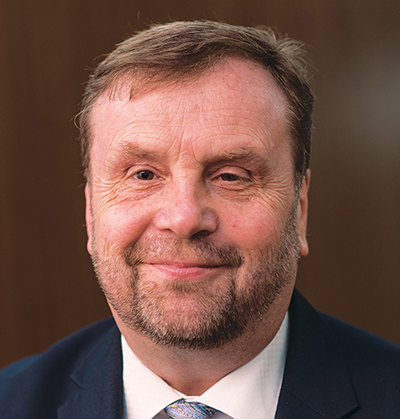
“Quality, competence and professionalism are key to addressing this. I would like to see a return to sensible and coherent regulation that both addresses the safety case and ensures that those who reside in these properties have a voice that is heard.
“Professionaling the industry is key from the trades upwards, and the professions are key to ensuring that their members are both competent and current in their skills sets and are driving the culture change that is so evidently required across the built environment.
“There also needs to be a serious review of how we address issues of reputational damage that is done to the industry and not least in an industry that is unlicensed and whether this is worth a further review and to give further reassurance to the consumer.
“More broadly, the issue of risk at many levels in the industry is not one simply for the insurance sector to resolve: all the main players need to be actively engaged in finding the right solutions.

“I think the strategy that sits underneath government policy needs to be integrated with a sensible approach to the planning regime that links strongly to building safety and a building safety regime that links to the planning regime.”
CIOB public affairs officer David Parry echoed Tuttle’s point: “One of the things that drives me is that there seems to be a serious disconnect between what we as professional bodies are calling for and what is coming out of Westminster.”
‘Influencing change’

Gary Strong, global director of building standards at Royal Institution of Chartered Surveyors (RICS), emphasised the need for change and for someone to formally drive it: “It is about influencing change, being at the forefront of leadership really. I think there are a lot of people that sit back and think it is somebody else’s job to secure change for the better.”
CIBSE’s Copeland underlined this: “We are at a crossroads here: we can use the Building Safety Bill as the lever to demand those competencies in the industry that could be the foundations of change. If we don’t really grasp this with all hands right now, we are going to miss a fantastic opportunity to make a meaningful change.”
There was common acceptance that the industry’s PII problem cannot be solved overnight and that the professional bodies will need to work together to draft a proposal, some sort of proof case for a more resilient and non-adversarial way of working in collaboration that will engage the insurance sector in a sustainable insurance concept that it can say ‘yes’ to.
‘Important first step’
Having listened to the points made, the ABI’s Dalton noted that the construction industry has recognised that it has a problem, which is “an important first step.”
He added: “The insurance industry started by insuring fire risk. And it is an industry that has seen the development of cars, seen the development of the internet and has responded, innovated, and adapted to serve the changing needs of customers over a very long time.
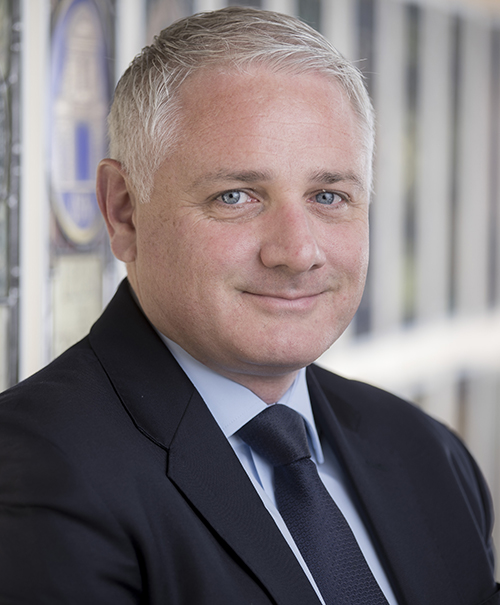
“Enabling people like you and the people that your organisations represent, helping them to help their customers to build quality buildings that are safe, that are fit for purpose and that will stand the test of time: I think insurance can be a facilitator and enabler of those objectives.
“You’re our customers and we’ve got to help you.”
Drawing the discussion to a close, Flaxman said: “I believe, and this is supported by James, that the insurance industry wants to engage with the built environment, but, frankly doesn’t know where to start.
“That is because there are so many diverse, vested interests in the construction, development, professional and built environment arena, each lobbying for their own insurance solution, but not taking into account the necessity of addressing the presently uninsurable risks that have been so comprehensively exposed since the Grenfell tragedy.
“There is no ready-made solution, but there is ample opportunity to create a solution. All it needs is a joined up approach to “quality, competence and professionalism” with the support of government to rigorously enforce standards not just to protect life but also to protect sustainable property and above all protect the interests of the people that occupy the built environment, trusting that the government has ensured it is ‘safe’.
“This cannot and should not be left to market forces. They are at odds with the concept of safety and sustainability and insurers will no longer just ‘pick up the pieces’.



